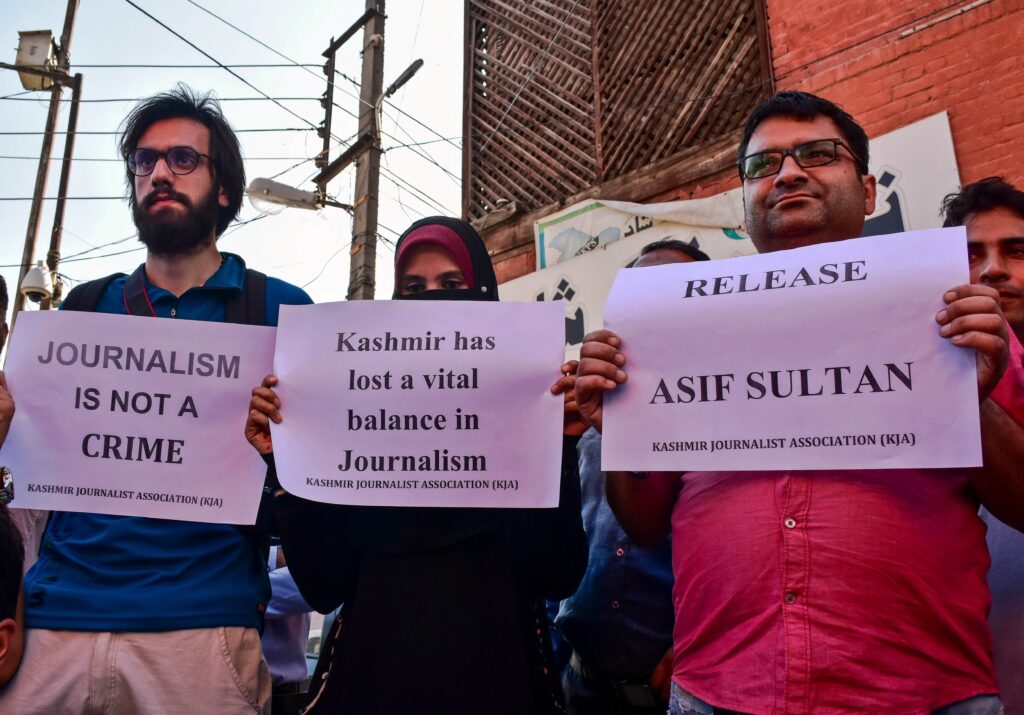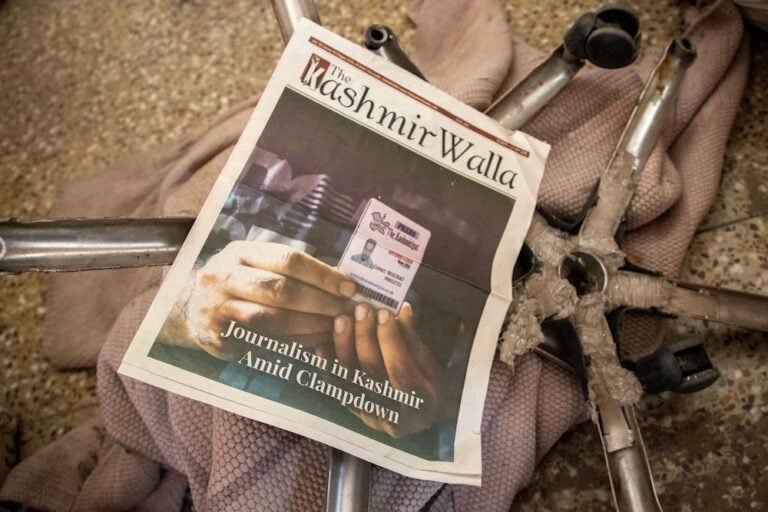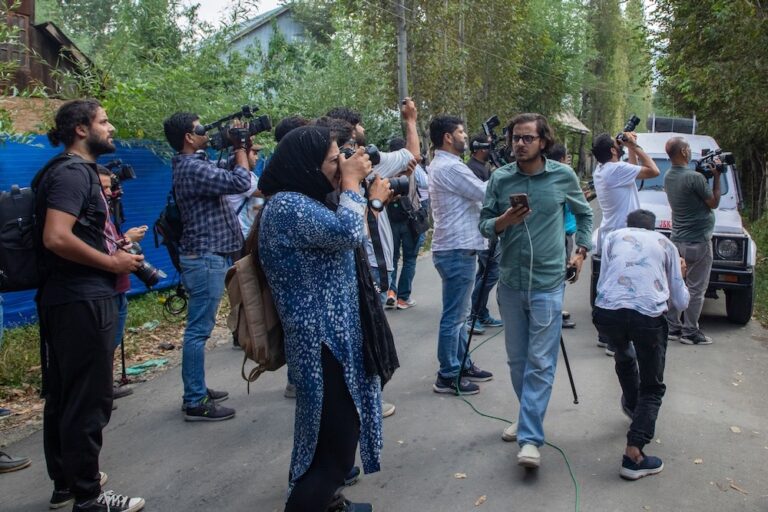Indian authorities urged to immediately cease harassing Kashmiri journalist Aasif Sultan in retaliation for his work.
This statement was originally published on cpj.org on 4 March 2024.
The Committee to Protect Journalists on Monday expressed alarm over the re-arrest of Kashmiri journalist Aasif Sultan two days after he was freed from more than five years of arbitrary detention and called on Indian authorities to immediately cease harassing him in retaliation for his work.
On February 27, Sultan was released from jail in the northern state of Uttar Pradesh and on February 29 he reached his home in Srinagar, the largest city in Indian-administered Jammu and Kashmir, some 1,500 kilometers (932 miles) further north, according to multiple news reports and a local journalist familiar with the case, who spoke to CPJ on the condition of anonymity, citing fear of reprisal.
When Sultan responded later that day to a summons to appear at Srinagar’s Rainawari police station for questioning on a separate matter, he was re-arrested, those sources said, in addition to Sultan’s lawyer Adil Pandit, who spoke to CPJ.
On March 1, Sultan was presented at a local court in Srinagar, which ordered that he remain in police custody pending investigation until March 5, Pandit said, adding that he was applying for bail on behalf of his client.
Sultan, an assistant editor and reporter with the defunct monthly magazine Kashmir Narrator, was first arrested in Srinagar in August 2018 and accused of “harbouring known militants” in a case marred by procedural delays and evidentiary irregularities. The previous month, Sultan published a cover story on slain Kashmiri militant Burhan Wani. CPJ and its partner organizations repeatedly called for Sultan’s release.
“The re-arrest of Kashmiri journalist Aasif Sultan on old charges, days after his release from five and a half years of arbitrary detention, raises concern that he has again been targeted because of his journalism,” said Carlos Martinez de la Serna, CPJ’s program director. “We call on the Indian government to immediately end its media crackdown in Kashmir and to ensure that Sultan and other Kashmiri journalists do not spend another day behind bars for peacefully exercising their right to freedom of expression.”
Sultan’s re-arrest on February 29 was related to a 2019 police first information report – a document opening an investigation – regarding riots in Srinagar Central Jail, where Sultan was detained at the time, Pandit told CPJ. Authorities filed a chargesheet in the case against Sultan and 20 others under sections of the penal code and anti-terror Unlawful Activities (Prevention) Act, Pandit said, adding that his client was not guilty.
It is not the first time that Sultan has been re-arrested.
On April 5, 2022, he was granted bail by a special court, which said that the state had failed to provide evidence linking him to any militant organization. But he was not released. Authorities held Sultan in a Srinagar police station, re-arrested him under the Jammu and Kashmir Public Safety Act (PSA) on April 10, and transferred him to jail in Uttar Pradesh. The law allows for preventive detention for up to two years without trial.
On December 11, 2023, the High Court of Jammu and Kashmir quashed the PSA case, calling Sultan’s detention “illegal and unsustainable.” However, Sultan was not released until February 27 because he required security clearance from the Jammu and Kashmir administration to return home, Pandit said.
Similarly, the Jammu and Kashmir High Court quashed a PSA order against journalist Sajad Gul in November, but he remains jailed in relation to a separate case.
R.R. Swain, Director General of Police of Jammu and Kashmir, did not immediately respond to CPJ’s emailed request for comment on Sultan’s re-arrest.



